Business
Businesses you can start with N50,000 capital
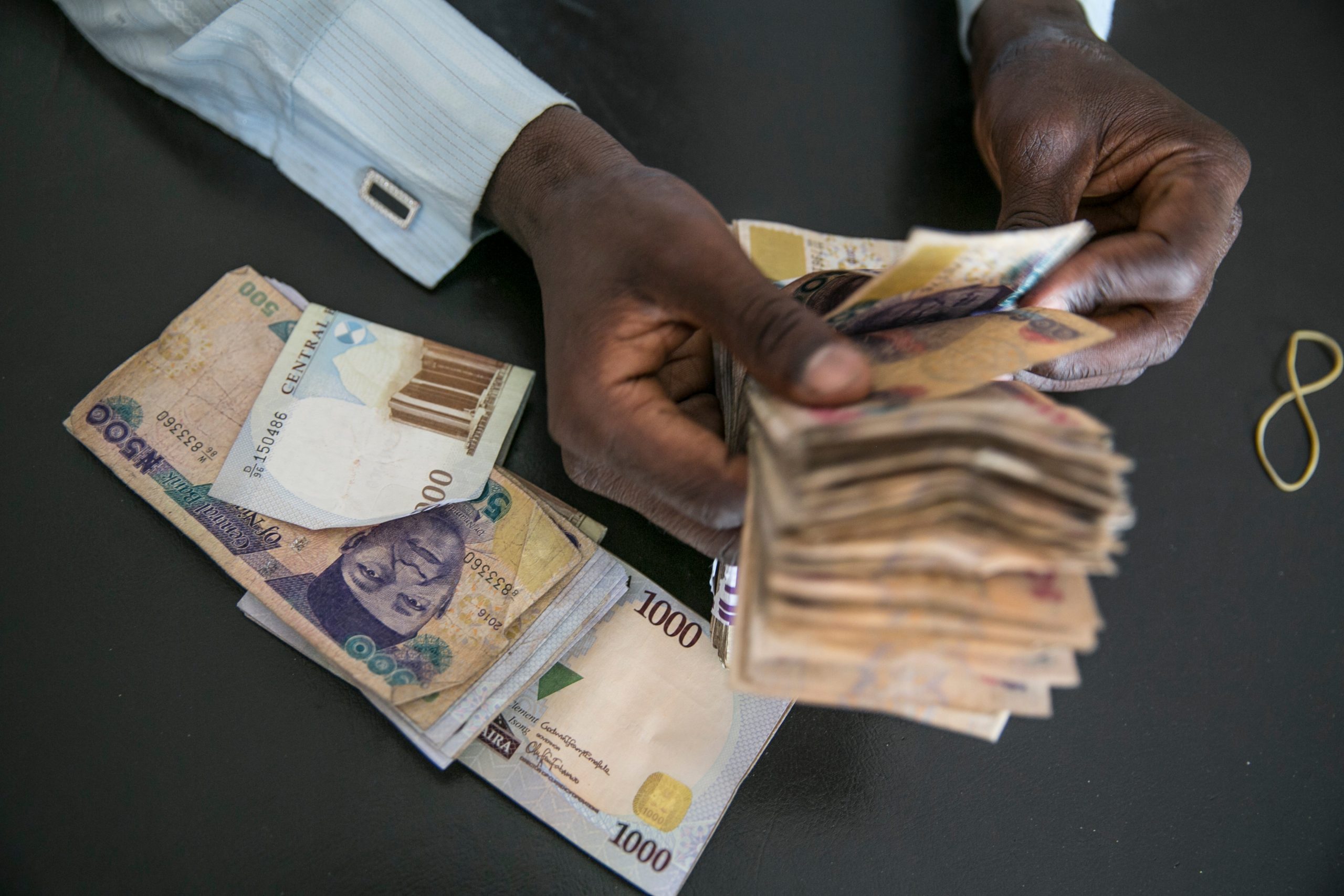
Nigeria boasts of about 41 million micro-businesses and 73,000 small and medium businesses, a survey by the Small and Medium Enterprises Development Agency of Nigeria has shown.
This shows that an average Nigerian is an entrepreneur in one way or the other, and this is because of the unpleasant risk to financial stability, due to poverty, lack of education and insecurity. Regardless, many Nigerians have forged ahead to build a lasting legacy of financial freedom for the generation yet unborn.
However, when individuals are tasked with the gospel of creating passive income, or secondary income source, the usual tilt towards lack of funds as an excuse has shortchanged individuals from breaking the shackles of meagre salaries and financial limitations.
Despite, arguments and reports fueled by the high cost of energy and epileptic power supply, personal finance experts have led conversations on the need to embrace multiple streams of income. While this might sound like a fairytale, it is possible to expand your income base. Of course, by taking baby steps and starting with one business at a time.
Pressed for funds to start? Here are a few small businesses to start with N50,000 and above despite the harsh economic climes of the nation.
Point of Sale business
Point of Sales service is considered as one of the most lucrative side hustles to adopt. Even though, some Nigerians have fully invested their capital and rely on it for primary income, it is still an effective way to earn some extra cash on the side.
A full-time PoS operator, Taiwo John operating along Lotto, Ofada bus stop told The PUNCH that, “Although the startup capital to venture into PoS business full time will cost about N250,000, if you are doing it as a side hustle with N50,000 to N150,000, you can start. If you are getting two terminals, you will need like N50,000, that’s about N25,000 each.”
According to him, for starters, consistency will play a big role in determining the success of the business.
“This business is about trust, so after getting your accessories for about N25,000 you need to get cash to run the business and make sure you are always available when customers need you. Above all John, states that as a business owner, “you must pay attention to your profit rather than just making sales.”
The Point of Sale business has rapidly spread through the rural areas as it is quite easy to start.
In fact, according to the National Bureau of Statistics, the number of registered PoS operators has grown over the years. In January, due to the cashless policy, Point of Sales transactions grew to N807.16bn which signified a 40.69 per cent year-on-year increase from the N573.72bn transactions that were done in January 2022. This is a clear indicator that the PoS business is lucrative and there is a demand for the service.
Perfume business
The perfume oil business is another venture to go into. According to a perfume oil wholesaler living in Ketu, “Anyone can start a perfume oil business with as low as N11,000. I started mine about four years ago with just N24,000 and later I reinvested about N34,000 into the business. At the time, I was a retailer but now I am a wholesaler,” Tomisin Oke told newsmen.
Speaking on the profit margin recorded on the initial investment, she says that newbies can “Expect to make about 60 per cent to 40 per cent depending on the sales, but your gain cannot be less than 50 per cent half the time.”
Based on findings by newsmen, there are numerous wholesale distributor groups for oil perfume business owners.
Reaching out to one of the groups, a distributor explains that oil perfume retailers can start with capital as little as, “N11,000, 15,000 or N21,000. The N15,000 pack comes with 40 bottles of 3ml oils and you can sell for N500 per each. You can sell the 6ml for N800 to N1000 per each. And you can also do the payment on delivery.”
A survey report by Fortune Business Insight revealed that in 2020, the global perfume market was worth $29.8bn. This is largely driven by the demand for cosmetics and beauty. Even better is the fact that this business can be run from home without stress.
Thrifts clothes
The thrift clothing business otherwise known as “Okrika”(second-hand clothes) is considered as one business that favours small capital to start.
Patronised by a majority of Nigerians, this business is considered lucrative and quite easy to manage, all thanks to its affordability for the average Nigerian.
Speaking with thrift vendors, our correspondent gathered that there are major factors to consider before taking a deep dive but the business needs a little capital of N20,000 to N50,000 or more depending on the buyer’s pocket.
A wholesale thrift business owner in Ikorodu, Jackson Anadi, tells our correspondent that individuals can begin with N20,000.
He says, “If you have like N20,000 cash, you can start, but then it depends on your area. You look at your area what is really needed? Do you have more children, do you think the parents of these children will buy? Or do you have more young girls or ladies?
“Are they stylish? Do you think they would buy it? These are basic things to put into consideration. You have to take note of what is needed at a particular time, and after that, you can decide to sell.”
Another thrift operator in Osogbo, Aminah Abdulrauf, tells our correspondent that before venturing into selling thrift clothes, individuals must understand the customer’s needs and gauge the environment where sales will take place.
According to her, “If you are a newbie in this business, if you are selling to a community that has a high-class breed of residents, understand that they would prefer wares that are neat and high quality.
“So if you take clearance wears to them because they are cheaper to buy and sell, they may not buy.
“If your plan is to sell to students, then go for items like ladies’ tops, bum shorts and bralettes, or maybe nightwear. If you have more money to spare, you can add jeans to the mix. With N50,000 you can also invest in first-grade or neat clearance for that.”
Abdulrauf advises that for newbies, “Buy a small quantity first and then when the demand grows, you can then restock more of items that sold fast.”
Business
Nigeria’s GDP rate grew by 3.46% in Q3 2024, says NBS

The National Bureau of Statistics (NBS) says Nigeria’s annual gross domestic product (GDP) grew by 3.46 percent in the third quarter (Q3) of 2024.
The NBS, in its GDP report published on Monday, said the growth rate is higher than the 3.19 percent recorded in Q2 2024.
Business
Dangote refinery reduces ex-depot price of petrol to N970 for oil marketers

The Dangote Petroleum Refinery has announced a reduction in its ex-depot price of premium motor spirit (PMS), also known as petrol, to N970 per litre for oil marketers.
This is a cut from the refinery’s N990 ex-depot price announced earlier this month, according to a statement on Sunday.
The slash would help marketers save about N20 on each litre of petrol bought from the Lekki-based plant.
Anthony Chiejina, Dangote Group’s chief branding and communications officer, said the move is the refinery’s way of appreciating Nigerians “for their unwavering support in making the refinery a dream come true”.
“In addition, this is to thank the government for their support as this will complement the measures put in place to encourage domestic enterprise for our collective well-being,” the statement reads.
“While the refinery would not compromise on the quality of its petroleum products, we assure you of best quality products that are environmentally friendly and sustainable.
“We are determined to keep ramping up production to meet and surpass our domestic fuel consumption; thus, dispelling any fear of a shortfall in supply.”
Business
Allegation of missing fund untrue, says Access Bank
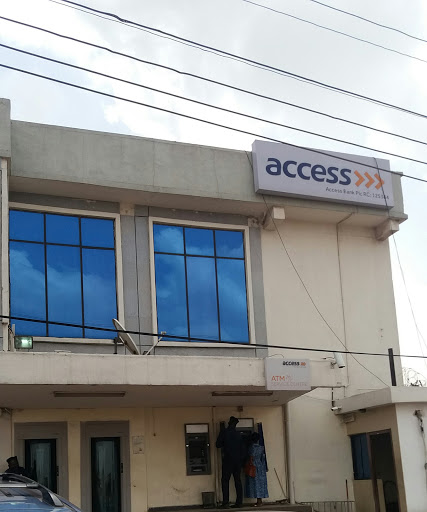
Access Bank Limited has dismissed as untrue allegations of missing fund and unethical behaviour.
The Bank in a statement said: “Our attention has been drawn to a video on social media wherein allegations of missing funds and unethical behaviour have been made against Access Bank PLC.
“First and foremost, we wish to emphasise that the safety and security of our customers’ funds are core priorities which we take seriously. Second, Access Bank Plc does not engage in or condone any unethical behaviour.
“In the instant case, the allegations of missing funds in the Bank are most untrue and baseless.
“There is no N500million or any other fund or amount missing from the subject customer’s account or from any other customer’s account with us.
“We and other independent stakeholders in the banking industry have thoroughly investigated these allegations and independently arrived at the same conclusions.
“Access Bank PLC operates with the highest ethical standards, and we protect our customers’ interests whilst also respecting privacy laws.
“Consequently, whilst we have engaged and will continue to engage with our customers, we must advise the public not to rely on or believe sensational and unverified claims that are designed to titillate and mislead the public.
“We remain committed to serving our customers.”
-

 Business1 week ago
Business1 week agoLagos state government to commence upgrade of major junctions in Ikeja axis, seeks residents’ cooperation
-

 Politics1 week ago
Politics1 week agoDSS operatives arrest man with bags of cash during Ondo guber
-
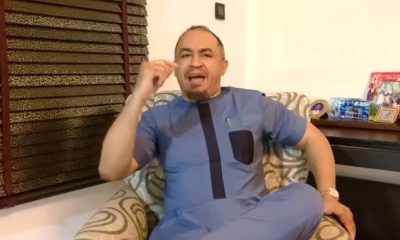
 Celebrities1 week ago
Celebrities1 week agoDaddy Freeze, Akah Nnani clash over Emmanuel Iren
-

 Special Features2 days ago
Special Features2 days agoIyabo Ojo, Brainjotter, Dayo Oketola, Penzaarville, Tomiwa and others to speak at the Bodex Social Media Hangout 5.0
-

 News1 week ago
News1 week agoNnamdi Emeh: Suspect Facing Charges In Court, Process Independent Of Police Influence
-
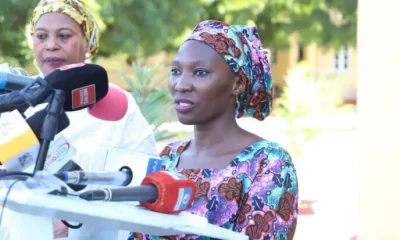
 News1 week ago
News1 week agoAlice Loksha, abducted UNICEF nurse, escapes captivity after 6 years
-

 Health1 week ago
Health1 week agoFive ways to rid your home of ants
-
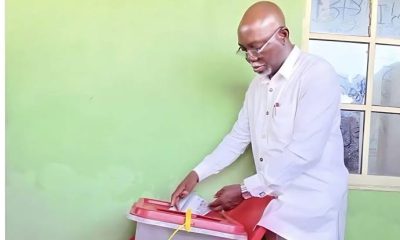
 Politics1 week ago
Politics1 week agoAiyedatiwa takes commanding lead in Ondo guber poll after winning 15 of 18 LGAs


















